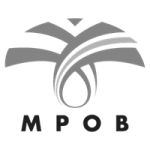Training Profile
| Training Code | tp97 |
| Training Duration | 1 day . |
Course Title: Understanding ESG Disclosure Requirements for the Agricultural Sector
Course Introduction: This course is designed to equip stakeholders in Malaysia’s agricultural sector with a comprehensive understanding of Environmental, Social, and Governance (ESG) principles and the specific disclosure requirements pertinent to their industry. Participants will gain practical knowledge to effectively implement ESG disclosures within their organizations, ensuring compliance with Malaysia’s Simplified ESG Disclosure Guidelines (SEDG) and enhancing sustainability practices.
Course Objectives:
- Provide a comprehensive understanding of ESG principles and their relevance to the agricultural sector in Malaysia.
- Familiarize participants with Malaysia’s Simplified ESG Disclosure Guidelines (SEDG) and sector-specific disclosures for agriculture.
- Equip participants with practical knowledge to implement ESG disclosures effectively within their organizations.
Target Participants:
- Agricultural business owners
- Managers
- Sustainability officers
- Compliance officers
- Other stakeholders in Malaysia’s agricultural sector
Course Duration: 1 Day (8 hours)
Mode of Delivery: Physical or Online
Course Outline:
Module 1: Introduction to ESG in Agriculture
- Definition and importance of ESG in the agricultural context.
- Global and local ESG trends impacting agriculture.
- Benefits of ESG integration for agricultural businesses.
Module 2: Overview of Malaysia’s Simplified ESG Disclosure Guidelines (SEDG)
- Purpose and objectives of the SEDG.
- Structure of the SEDG: Environmental, Social, and Governance pillars.
- Relevance of SEDG to SMEs in the agricultural supply chain.
Module 3: Sector-Specific ESG Disclosures for Agriculture
- Detailed exploration of sector-specific disclosures as outlined in the SEDG Agriculture Sector Guide.
- Environmental Disclosures: Emissions, energy use, water management, waste management, and materials usage.
- Social Disclosures: Human rights and labor practices, employee management, diversity and inclusion, occupational health and safety, community engagement.
- Governance Disclosures: Governance structure, policy commitments, risk management, anti-corruption measures, customer privacy.
- Certification Schemes and Compliance Considerations
- Overview of relevant certification schemes for agriculture (e.g., MSPO, RSPO, ISPO, Rainforest Alliance, FSC).
- Understanding EU Deforestation Regulation (EUDR) and its impact on Malaysia’s agricultural sector.
- High Conservation Value (HCV) areas and ESG reporting.
- Conducting Social Impact Assessments (SIA) as part of ESG disclosures.
- Integrating GHG emission accounting into ESG disclosures.
- Considerations for Land Use Change (LUC) reporting and sustainability.
Module 4: Implementing ESG Disclosures in Agricultural Operations
- Steps to integrate ESG considerations into agricultural practices.
- Data collection methods for ESG reporting.
- Utilizing the SEDG Data Collection Template for agriculture.
- Case studies of successful ESG implementation in Malaysian agriculture.
Module 5: Practical Workshop and Q&A
- Interactive session where participants work on sample ESG disclosure scenarios.
- Group discussions on challenges and solutions in ESG reporting.
- Q&A session to address specific participant queries.
Additional Resources:
- Participants will receive copies of the Simplified ESG Disclosure Guide and the Agriculture Sector Guide for reference.
- Access to the SEDG Data Collection Template tailored for the agricultural sector.
This training program aims to provide agricultural stakeholders in Malaysia with the knowledge and tools necessary to effectively understand and implement ESG disclosure requirements, thereby enhancing sustainability and compliance within the sector.







